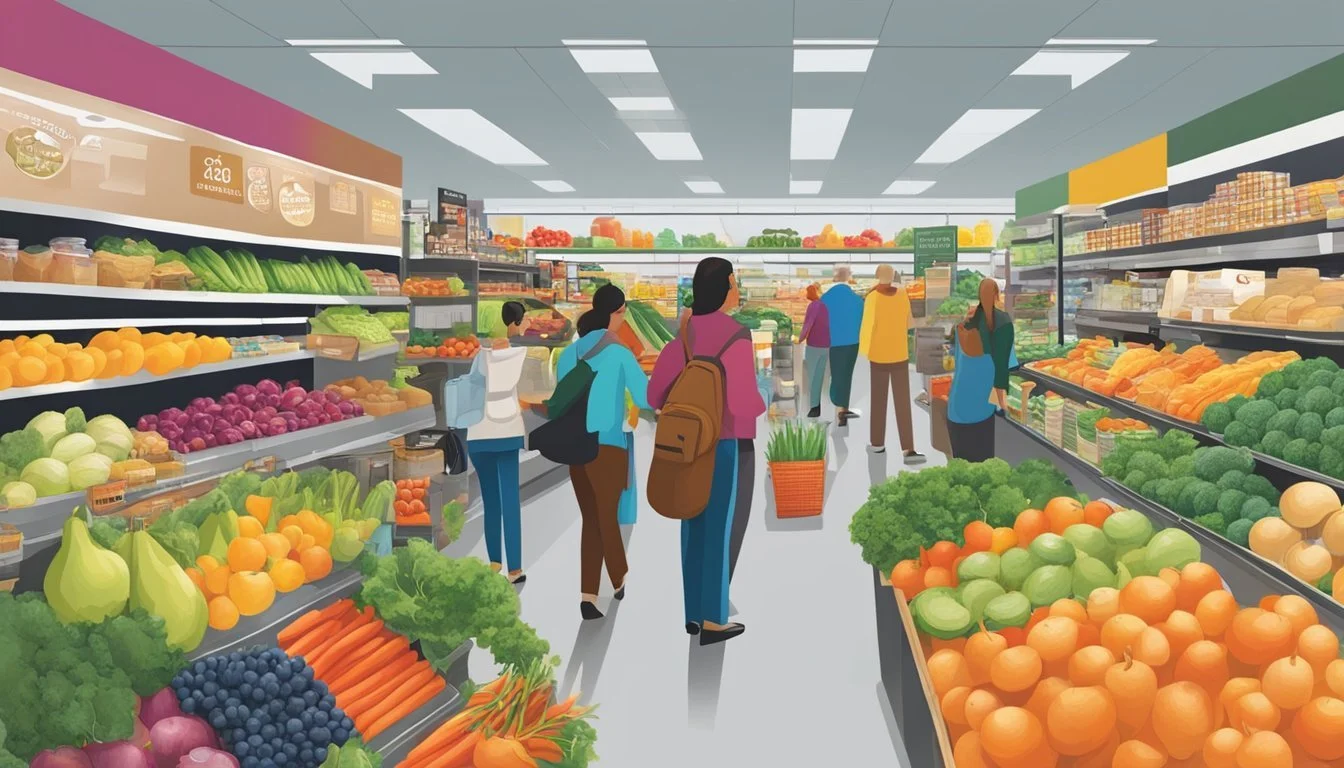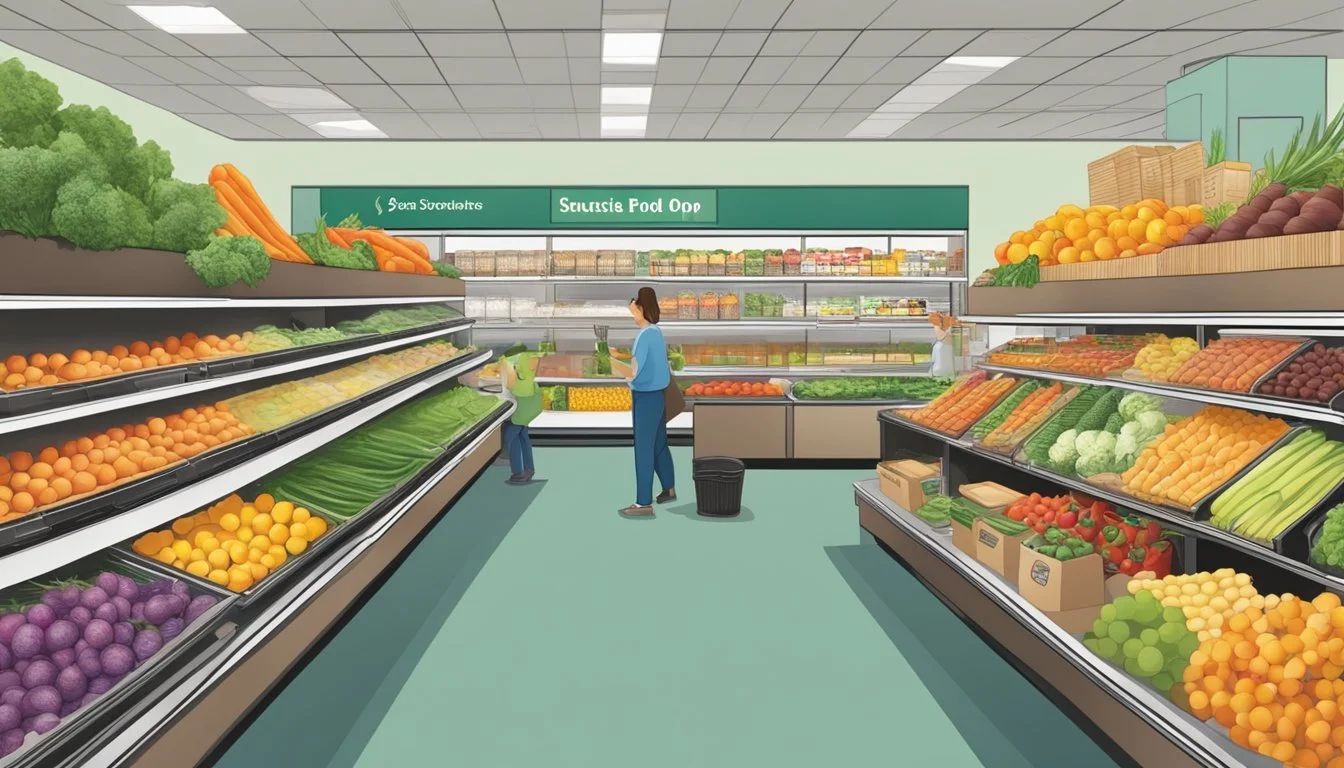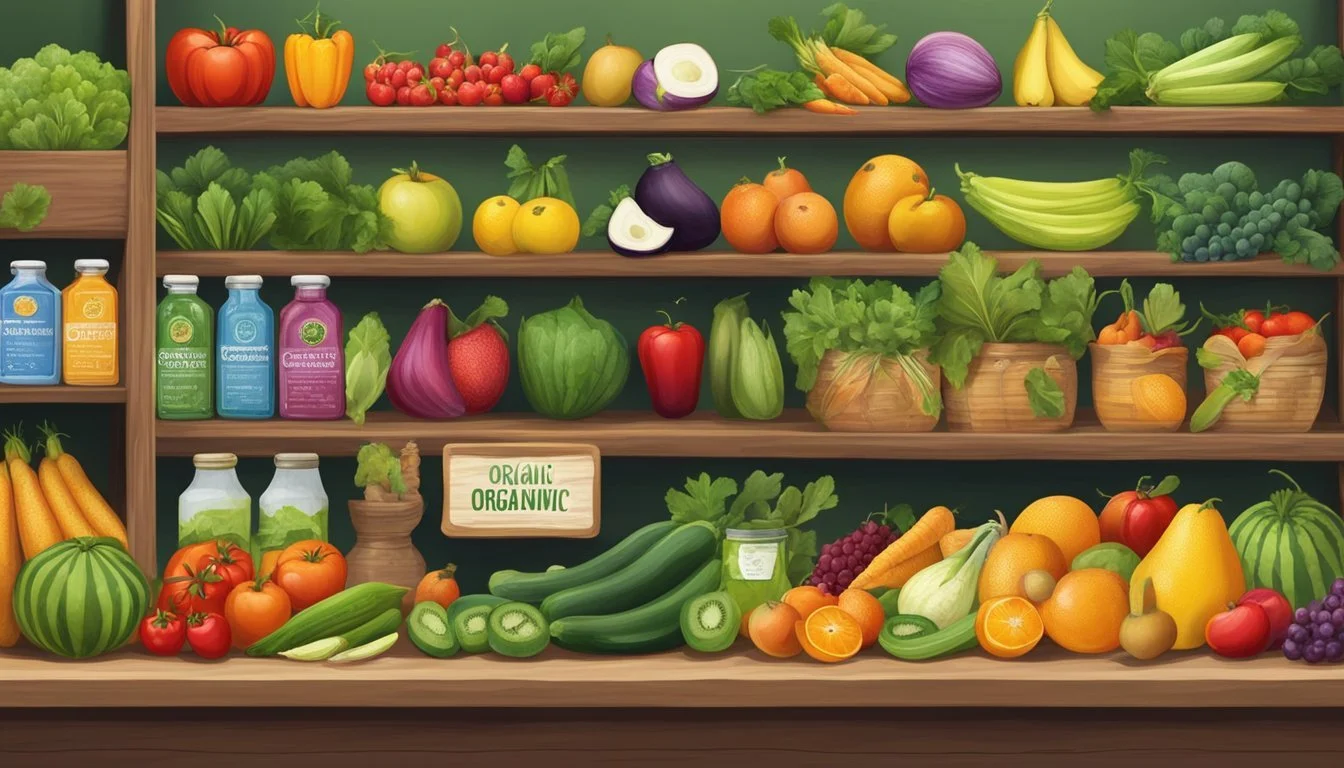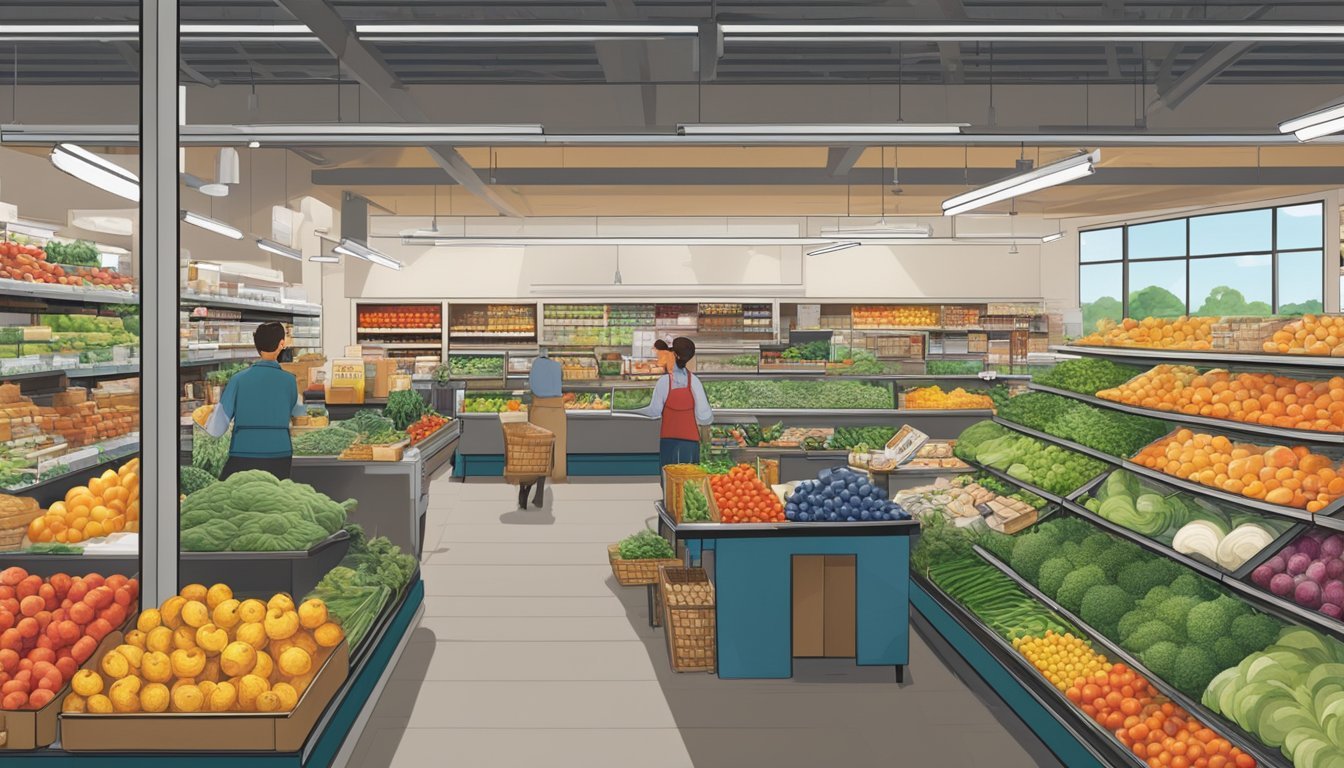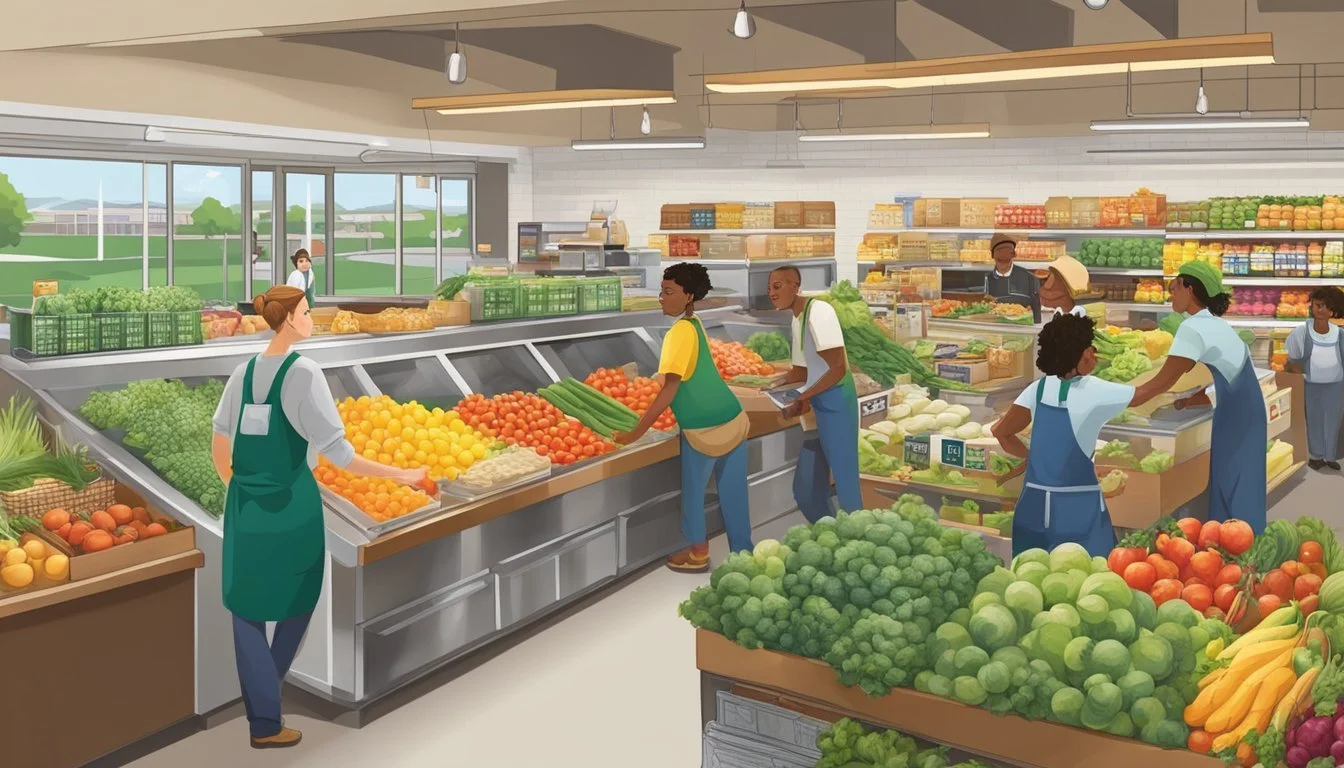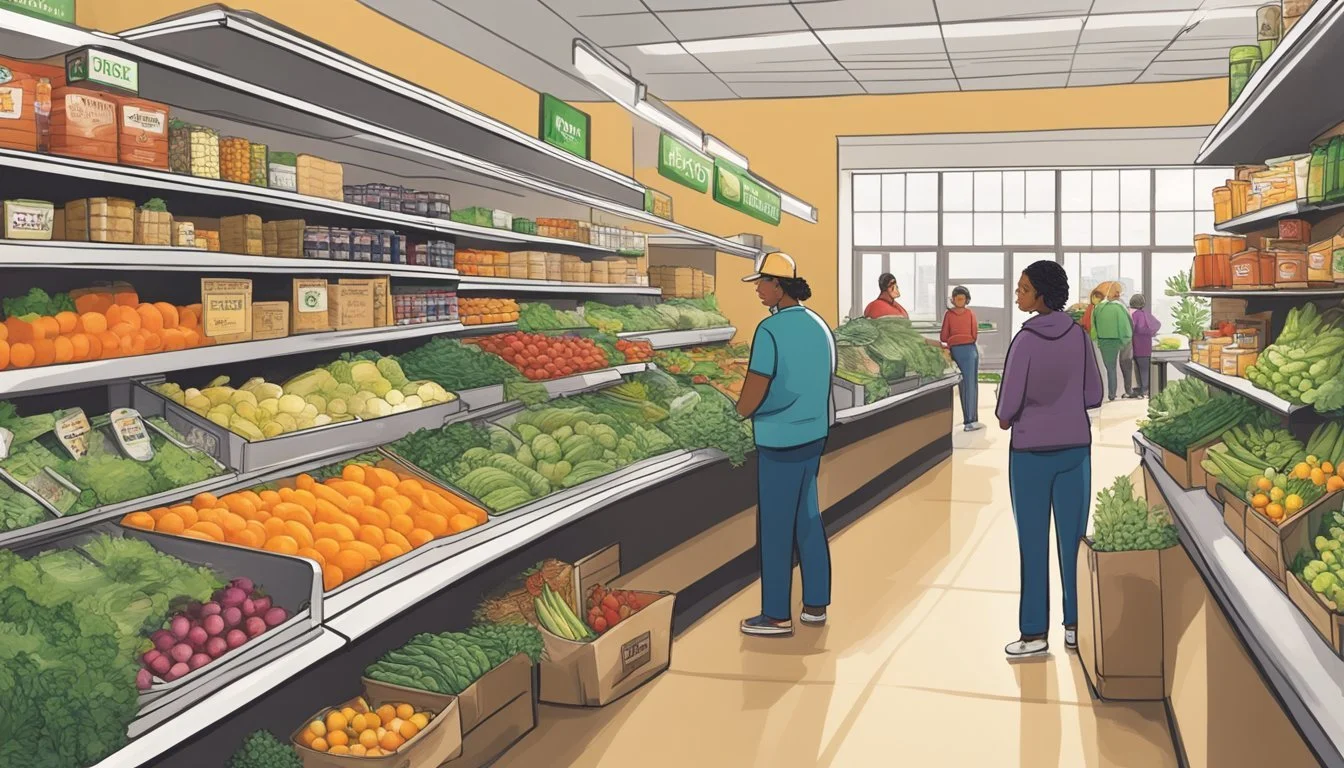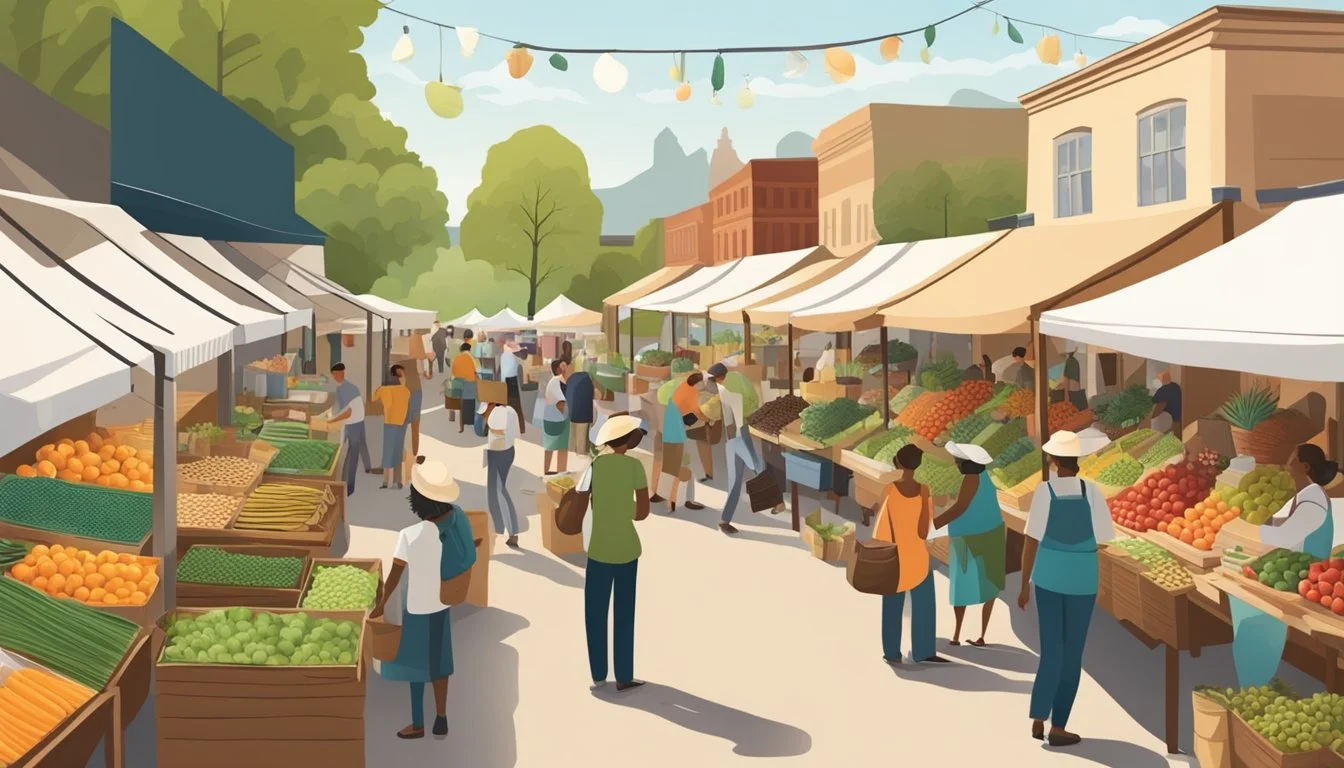Guide to Food Co-Ops in Aurora, IL
Your Access to Local, Fresh Produce
Food cooperatives, commonly known as food co-ops, offer an alternative to traditional grocery shopping, emphasizing community involvement and local sourcing. In Aurora, Illinois, this rising model of food retail prioritizes organic, locally-sourced produce, meats, and dairy, reflecting a larger trend toward sustainability and direct farm-to-consumer relationships. These co-ops are often founded on the desire to provide community access to whole, nutritious foods with minimal processing, appealing to consumers interested in both the quality of their food and its environmental impact.
Typically structured around a member-owned and operated framework, food co-ops in Aurora allow for closer ties between consumers and producers. This not only bolsters the local economy but also fosters a sense of community around food purchasing. Unlike conventional grocery stores, co-ops often operate democratically, giving members a voice in business decisions and a share in any profits.
The landscape of food co-ops in Aurora caters to a diverse set of needs, from bulk or overstocked items at significant discounts to an array of traditional grocery items that include organic and natural offerings. Some operate from a specific physical location, while others, such as Fresh From The Farm Co-op based in nearby Lemont, focus on direct delivery of farm-sourced products, echoing a deepening community commitment to healthy, environmentally conscious eating habits.
What is a Food Co-op?
In Aurora, IL, food co-ops represent a community-centric alternative to traditional grocery shopping, structured as cooperatively owned establishments where decisions and benefits are shared among its members.
Defining Food Cooperatives
A food co-op is a grocery entity that is collectively owned and democratically controlled by its members. Unlike standard retail grocers, each member of a co-op has a stake in the business, granting them a voice in operational decisions. In essence, membership carries with it both collective ownership and the capacity to influence the shop's offerings and guidelines.
Benefits of Co-ops to the Community
Food co-ops yield significant benefits to the local community by:
Prioritizing local suppliers and producers, thus supporting the local economy.
Offering membership perks such as discounts or sharing in the profits.
Catering to community needs by providing products that reflect local preferences and values, such as organic or sustainably sourced goods.
How Co-ops Differ From Traditional Grocery Stores
Several key factors distinguish food co-ops from conventional grocery stores:
Ownership Model: Co-ops are community-owned, meaning shoppers have the option to become member-owners, contrasting the investor or privately-owned models of traditional grocers.
Decision-Making: Co-op members vote on important matters, influencing what the store stocks and how it operates.
Economic Focus: While traditional stores focus on profits, co-ops balance profitability with community service, ensuring that members' needs are at the forefront.
Joining a Food Co-op
Joining a food co-op in Aurora, IL allows individuals to become part of a community with shared values about food sourcing and consumption. Members typically contribute to the operations and gain a say in the business direction.
Understanding Membership
Membership in a food co-op involves entering a relationship with the cooperative and its members. It often requires purchasing a share, making the buyer a part owner. Member control is fundamental, with each member granted an equal vote in major decisions affecting the co-op.
Membership Benefits
Benefits for members of a food co-op can vary, but commonly include:
Discounts: Reduced prices on products.
Product Selection: Access to organic and sustainable goods.
Decision-Making: Voting rights in operational and policy decisions.
Membership in a food co-op also nurtures a closer relationship with food producers and fosters community engagement.
How to Become a Member
To become a member of a food co-op in Aurora, IL, individuals can typically follow these steps:
Contact the co-op: Reach out for membership information.
Review membership requirements: Understand fees, responsibilities, and benefits.
Complete an application: Fill out the necessary paperwork.
Purchase a share: Invest in the co-op by buying a membership share.
Engagement: Participate in meetings, votes, and other member activities.
Prospective members should inquire directly with the co-op for specific details on the joining process.
The Economics of Food Co-ops
Food co-ops serve as critical hubs for local economies, offering financial benefits to members and supporting sustainable economic practices. These cooperative grocery stores are member-owned, focusing on community enrichment through supporting local producers and family farms while providing cost-saving advantages to their members.
Supporting Local Economy
Food co-ops significantly bolster the local economy by sourcing products from local farmers and suppliers. They prioritize community involvement, ensuring that the profits remain within the community and contribute to its economic stability. By purchasing from family farms and small businesses, co-ops help circulate money locally, which can lead to job creation and overall economic growth within the community.
Local farmers benefit from having a consistent and reliable market for their products.
Family farms are often preferred over larger, non-local suppliers, sustaining the local agricultural scene.
Cost-Saving Advantages
Members of food co-ops typically benefit from cost savings through member discounts and potential annual dividends. Budget-conscious shoppers find value in co-ops since they can have a say in the operations, helping to keep costs down.
Reduced prices on groceries for members.
Bulk buying options often available, leading to further savings.
Sustainable Economic Practices
Sustainability is a cornerstone of the food co-op movement. They often lead in adopting environmentally friendly practices, which can also have long-term economic benefits. Investing in sustainability helps preserve local resources, reduces waste, and can lower operating costs.
Recycling and composting programs to minimize waste.
Energy-efficient practices and equipment to lower utilities expenses.
Local and Organic Offering
Food cooperatives in Aurora, IL, prioritize offering locally grown produce alongside organic and natural food options. They cater to a range of dietary preferences, ensuring accessibility of fresh, high-quality food to their community members.
Locally Grown Produce
LocalHarvest lists Aurora, IL as an area with multiple listings for local farms. These farms provide a variety of fresh produce to food co-ops, allowing them to offer seasonal fruits and vegetables that support the local agriculture industry. Consumers benefit from the nutritional quality and exceptional taste of locally sourced items, which often arrive at the store shortly after harvest.
Organic and Natural Foods
The Fresh From The Farm Co-op and The Food Shed Co-op have committed to providing organic and natural food choices. The former is community-owned, indicating an active investment in healthful food sourcing. Shoppers can expect to find products that meet stringent organic certification requirements and natural foods that are minimally processed with no artificial additives.
Special Dietary Options
Food co-ops in Aurora recognize the need to cater to various dietary needs. They provide:
Gluten-free products for those with celiac disease or gluten sensitivity
A selection of bulk goods, which allows customers to purchase the quantity they need while reducing packaging waste
Options for individuals following specific health-conscious diets, including plant-based and low-carb alternatives
By supporting these co-ops, customers actively participate in a sustainable food system that is sensitive to dietary needs, environmental care, and community wellness.
Shopping at a Food Co-op
Shopping at a food co-op offers unique advantages such as supporting local farmers, buying in bulk, and accessing fresh, seasonal products. These stores operate on principles that prioritize community involvement and sustainable sourcing.
Navigating the Store
In a food co-op, one might find a layout that differs from conventional grocery stores. Co-ops often emphasize local and organic products, which are usually highlighted and can range from produce to packaged goods. Signage is often clear and informative, allowing shoppers to learn about the source and practices behind the products they're purchasing. Look for community boards or flyers as they provide information about local events, sales, and new items.
Bulk Goods and Buying Clubs
A hallmark of many co-ops, including those near Aurora, IL, is the bulk section. Shoppers can buy bulk items such as grains, nuts, spices, and coffee, which reduces waste and often saves money. Additionally, buying clubs offer the chance to purchase large quantities at discounted rates, perfect for those looking to stock up on essentials or share with others. One should come prepared with their own containers to further reduce packaging waste.
Seasonal and Fresh Products Availability
Food co-ops excel in providing seasonal and fresh products that are often sourced directly from local farmers or regional farmers markets. This linkage ensures that the produce is fresh and has a lower carbon footprint due to reduced transportation distances. Availability may vary with the seasons, so shopping at a co-op comes with the expectancy of a rotating selection of fruits and vegetables. This rotation contributes to a diverse diet and supports the local agricultural community.
Community Engagement
Food cooperatives in Aurora, IL, not only provide access to quality food but also create a hub for community engagement. They host events and workshops, offer volunteering opportunities, and run community support programs that facilitate interaction and collaboration within the neighborhood.
Co-op Events and Workshops
Food co-ops frequently organize events and workshops tailored to enhance the knowledge and skills of the community members in areas related to health, nutrition, and sustainable living. Participants can look forward to events such as cooking classes, seminars on organic farming, and discussions on eco-friendly practices. This active involvement in educational activities cultivates a well-informed and connected community.
Upcoming Workshops:
Organic Home Gardening
Seasonal Cooking Demonstrations
Composting and Waste Reduction
Volunteering and Participation
Volunteering at a food co-op is a rewarding way for residents to contribute to their community. It promotes a sense of ownership and strengthens community bonds. Volunteers may assist in various tasks from managing the storefront to helping organize community events. Their participation ensures the smooth operation of the cooperative and upholds the spirit of collective responsibility.
Volunteer Opportunities:
Checkout assistance
Event coordination support
Inventory management
Community Support Programs
Food co-ops in Aurora are pivotal in initiating support programs that directly benefit the neighborhood. Such programs might include subsidized food schemes for low-income families, educational outreach in schools, and partnerships with local farms. These initiatives not only foster community resilience but also reinforce the cooperative's commitment to social responsibility and local development.
Active Support Programs:
Discounted Basket for Families in Need
School Lunch Improvement Partnerships
Local Farm Fresh Boxes
Aurora's Food Co-op Directory
This section provides a comprehensive view of Aurora's food cooperatives, detailing each one's location, accessibility, and unique offerings to assist residents in making informed choices.
Comprehensive Directory
Aurora, IL boasts a selection of food co-ops known for their commitment to local and organic products. The Marie Wilkinson Food Pantry stands out with over 50 years of dedicated service, offering food and clothing to support low-income families.
Location and Accessibility
The food co-ops in Aurora are strategically located to serve the community efficiently. For instance, the Marie Wilkinson Food Pantry is situated at a convenient address for residents, ensuring easy access for those in need of assistance.
Co-op Name Address Map Availability Accessibility Marie Wilkinson Food Pantry (Full address not provided) Not indicated High
Comparison of Aurora Co-ops
When comparing the various food co-ops throughout Aurora, differences in size, product range, and specialization become apparent. Despite these variations, all co-ops share a common goal: to provide access to nutritious, wholesome foods with a focus on supporting local producers and artisans.
Local Emphasis: Each co-op prioritizes locally sourced items.
Service Range: Co-ops differ in the extent of products and services offered.
Frequently Asked Questions
This section answers common queries about the Food Co-Ops in Aurora, Illinois, addressing general operations, membership intricacies, and specifics about product offerings including meat, cheese, eggs, and fruit.
General Inquiries
What is a Food Co-op?
A Food Co-op is a business democratically owned by its members who benefit mutually from its operations according to established cooperative principles.
Membership and Fees Questions
How does one become a member of a Food Co-op?
Individuals can become members by purchasing a membership, which typically entails a fee that may vary by co-op.
Are there recurring fees associated with membership?
Most Food Co-Ops have a one-time fee for membership, but some may have annual dues to maintain membership benefits.
Product and Suppliers Information
What types of products can one find at a Food Co-op?
Products may include a diverse selection of locally sourced meat, cheese, eggs, and seasonal fruits.
How are suppliers chosen for the Food Co-op?
Suppliers are often local producers and farmers who align with the co-op's standards for quality and sustainability.
Governance and Structure
In the realm of food cooperatives, effective governance and structure are vital for sustainable operation and member satisfaction. Within this framework, the Board of Directors plays a crucial role in setting the cooperative's strategic direction, whereas members exert control through democratic decision-making processes. Transparency and accountability are the cornerstones ensuring the organization's integrity and trustworthiness.
Understanding the Board of Directors
The Board of Directors is responsible for the overall governance of a food co-op. They are elected by the co-op's membership and are tasked with setting policies, strategic guidance, and overseeing the cooperative's general manager. Their duties are defined within the co-op's bylaws and influenced by the co-op's unique structure.
Election and Duties: Typically, board members are elected through a member vote.
Responsibilities: They are accountable for the co-op's financial health, strategic direction, and adherence to its mission.
Member's Role in Decision Making
Member control is a hallmark of co-op organization. Members influence key decisions and the organization's direction through a democratic process.
Voting: Members can vote on important issues, including electing the Board of Directors.
Meetings: Regular meetings are held to discuss and make decisions on matters affecting the co-op.
Transparency and Accountability
Transparency and accountability in a co-op ensure that members are informed and that the co-op upholds its ethical and business standards.
Information Sharing: Financial statements, meeting minutes, and policy changes are typically made available to members.
Systems for Preservation: Despite higher board turnover, food co-ops work to preserve institutional knowledge and maintain continuity.
Food co-ops in Aurora are designed to be responsive to their members, with emphasis on ethical governance and inclusive decision-making. These principles are not only essential in maintaining trust but are also expected to drive the organization forward.
Support and Resources
Aurora, IL's food co-ops provide a robust support system and a wealth of resources that cater to the needs of community members. They emphasize customer service, educational offerings, and regular communication through news and updates.
Customer Service
Food co-ops in Aurora prioritize customer satisfaction with emphasis on accessibility and assistance. They typically have knowledgeable staff ready to help with product inquiries, membership details, and purchasing assistance. Their commitment is to ensure that every visit is informative and engaging, nurturing the bond with the community.
Educational Resources
Education forms a cornerstone of these co-operatives with options like after-school programs, financial literacy courses, and even GED classes. Organizations like Family Focus offer a range of educational services at minimal costs, helping to improve not only food security but overall community well-being.
Co-op News and Updates
Staying informed is made straightforward through various channels that relay co-op news and updates. Food co-ops utilize newsletters, community boards, and digital platforms to keep members updated on the latest events, services, and any changes within the co-op structure. This consistent flow of information ensures that members and employees are on the same page regarding the co-op's operations and community activities.
Understanding Co-op Finances
In examining the financial health of a food cooperative (co-op) in Aurora, IL, one should approach it with the same diligence as analyzing any business. Co-op finances tend to include a budget, audited financial statements, and disclosure about shares and subscriptions from members.
A co-op's budget reflects its operating costs, expected revenues, and includes provisions for community benefits. The budget is essential for strategic planning, allocating resources, and ensuring the economic sustainability of the co-op.
Shares represent membership equity in the co-op. They are typically a one-time purchase and confer the right to vote on important matters and potentially receive dividends based on the co-op's profits. Unlike traditional stock, earnings on shares are meant to be equitable and reflect patronage rather than investment volume.
A subscription to a co-op often involves a fee for the ongoing supply of goods or services. This model ensures a steady flow of revenue and strengthens the co-op's economic base.
The table below summarizes key financial components:
Aspect Description Budget A detailed financial plan outlining expenses and income. Shares Equity stakes purchased by members. Subscription Recurring fees for products or services. Audited Financials Verified accounts ensuring transparency and accountability.
Co-op members are encouraged to participate in financial discussions and have access to (audited or unaudited) financial statements, fostering a culture of transparency and shared economic responsibility. Insightful analysis of these finances is crucial for the members to make informed decisions regarding the co-op's future.
Sourcing and Ethical Practices
Food cooperatives (co-ops) in Aurora, IL, prioritize ethical sourcing by forging strong relationships with local farmers and producers. These co-ops are committed to offering healthy food options, including high-quality meat and cheese, to community members.
Local Farmers: Co-ops partner with local farmers to provide fresh and healthy produce. By doing so, they maintain a close relationship with the individuals who cultivate the food, ensuring it meets the co-op's standards for quality.
Meat and Cheese Sourcing: When it comes to meat and cheese, co-ops in Aurora focus on transparency. They typically source from farms that practice humane animal husbandry, offering customers products derived from animals that are raised in better conditions.
Ethical Practices Checklist:
Supplier Selection: Strict criteria to ensure alignment with ethical standards.
Management Involvement: Top management actively promotes and enforces ethical practices.
Labor and Diversity: Attention to labor sources, ensuring no forced labor and promotion of diversity.
Quality Assurance: Co-ops are known for their dedication to providing the highest quality products. They frequently conduct thorough checks and balances to guarantee that the food on their shelves is of exceptional quality.
By adhering to these ethical sourcing and business practices, food co-ops in Aurora not only support local economies and sustainable agriculture but also meet consumer demand for ethical and quality food choices.

